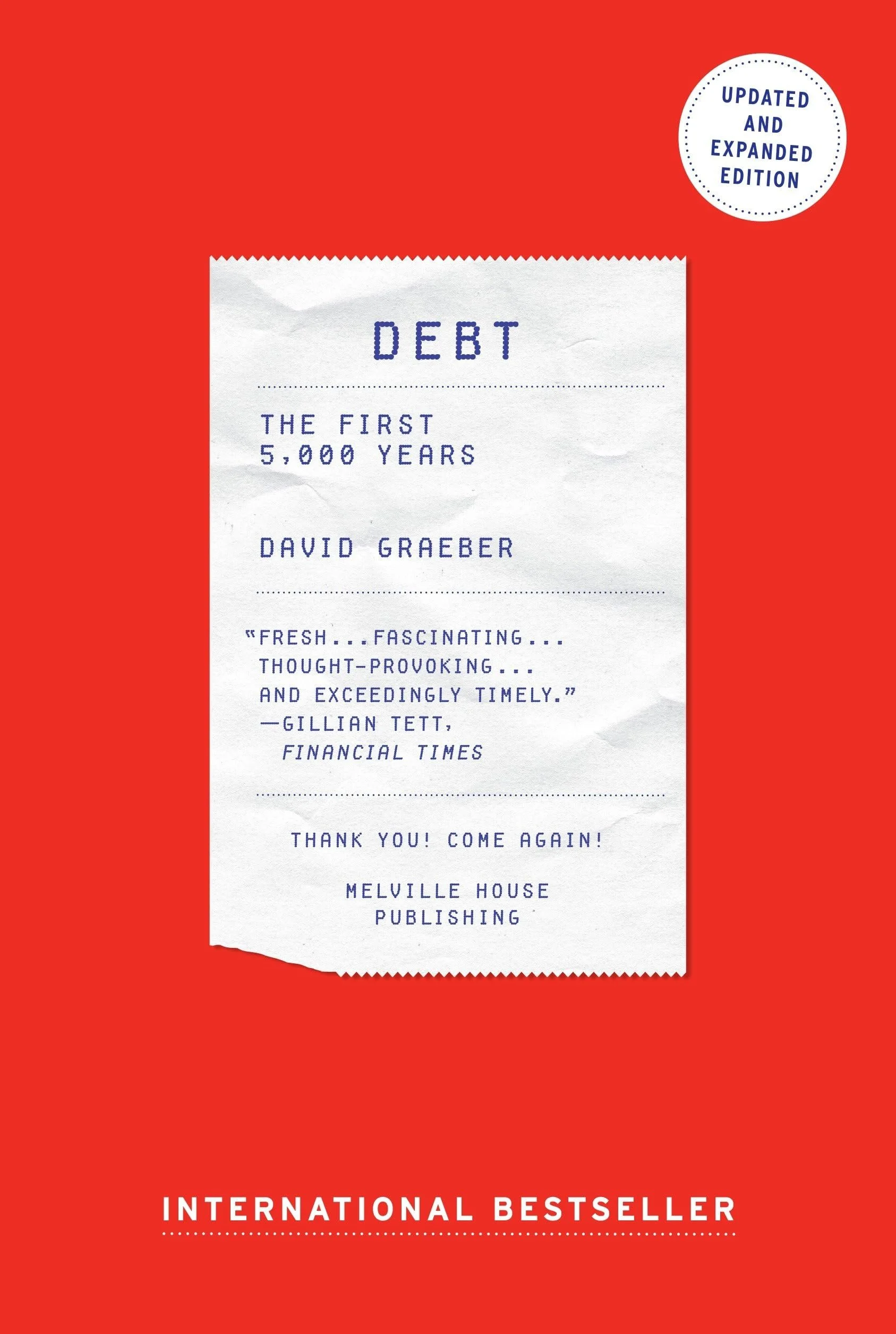Debt:The First 5,000 Years
I’ve read a number of books on monetary history however Debt: The First 5,000 Years went in a slightly different direction to what I had originally expected. I purchased the book based on the title without even checking the synopsis and was expecting it to be a history on monetary debt and the consequences when debt levels get out of control. What I found when I started listening though was pleasantly surprising as it took a different lens to the topic of debt, credit and money to books I’d previously read.
Rather than a deep dive on monetary debt the book focuses more on societies relationship with debt in a more psychological sense. Graeber questions the idea of money arising from the double coincidence of wants that other monetary historians focus on. Instead, he details the concept of debt and credit throughout history with numerous examples of how debts were accrued through human economies and ultimately how money was a consequence due to a need to quantify and settle debts in a more consistent manner.
It may on the face of it seem of little consequence as to whether money was conceived to address the double coincidence of wants in the barter economy vs a means of settling debts. The difference may seem only a nuance however as Graeber goes into great detail to cover the result of debt as the conception of money creates a psychological relationship to debt, credit and money to continues to prevail to modern day.
Throughout the book he raises a number of thought provoking points that give you more than reason to pause on ponder over more deeply. For anyone interested in monetary history as well as the insidious impact of debt on society including the consequence even up to modern times ie the 2008 GFC this is well worth a read or listen.
Somewhat surprisingly this was also my first exposure to Graeber although I’ve already ordered a couple more of his books to explore his ideas in more detail after this introduction. The book is incredibly in depth, timely in it’s release as well as for anyone picking it up today and more relatable than maybe people would expect when he goes into some of the more philosophical views on debt.
Who’s it for?
Anyone interested in monetary history, economics or an in depth exploration of debt and its consequences on society. Given the position we find ourselves in globally with debt into the trillions this is timely, relevant and thought provoking to the curious of mind or even those well read on the topic but seeking a different lens on it.

